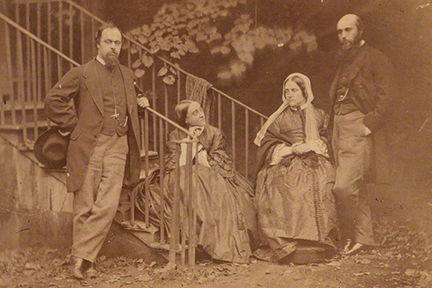
Figure 1 -Charles Lutwidge Dodgson, albumen print, 7 October 1863 showing the Rossetti family. Original in the NPG London and in the public domain in the United States because of its age.
I spoke on Saturday about Dante Gabriel Rossetti and Jane Morris. One of his paintings that I described was “Ecce-Ancilla-Domini-the-Annunciation.” You might wonder who the model for the Virgin Mary was. It was his sister Christina Georgina Rossetti (1830 – 1894). Christina Rossetti was a poet, prominent in Pre-Raphaelite circles, who upon the death of Elizabeth Barret Browning (1806-1861) ascended to the “throne” of leading female English poet.
I got interested in searching for photographs of Christina Rossetti. As it turned out, there are very few, but dominant among these is an 1863 image by none other than Charles Dodgson (Lewis Carol) (1832-1898). It is shown here as Figure 1. Left to right in the photograph is Dante Gabriel Rossetti, Christina Georgina Rossetti, their mother Frances Polidori, (who coincidentally was the sister of Lord Byron‘s friend and physician, John William Polidori), and their father Gabriele Rossetti.
This is not one of Dodgson’s greatest photographic works. But for its age, the photographer, and the subjects it would be easily dismissed. But it offers up one of those captured moments of the nineteenth century that I am so fond of. It is as close as you are going to get to an 1863 “snapshot.” In that respect you feel almost as a voyeur looking at it, intruding on a family’s intimacy on a gorgeous summer’s day – what a mere century and a half ago.
As denizens of the twenty-first century, with our long history of science fiction, you can almost imagine that they have a dim awareness of us. When you take a photograph you commit it by default to posterity. It is meant to be looked at, the subjects remember, ideally with a fondness. Firs it is seen by family and friends, then perhaps descendants, but in the end inevitably by strangers, who you can only hope will view it with respectful tenderness. Christina Georgina Rossetti herself had these beautiful words to say about remembrance:
